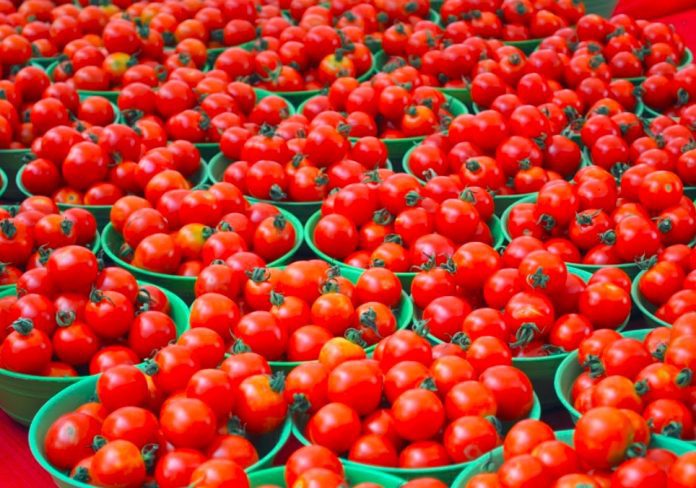News in Brief:
– Nigeria is set to host a roundtable policy discussion to address challenges in its tomato industry, including pest outbreaks, climate change, and high production costs.
– The aim is to boost production, reduce post-harvest losses, and enhance food security.
Nigeria’s Federal Ministry of Agriculture and Food Security (FMAFS) has announced a one-day roundtable discussion to address the challenges hindering Nigeria’s tomato sector.
The event is expected to bring together key stakeholders to explore strategies for boosting tomato production and reducing post-harvest losses to improve food security. The ministry disclosed this during a recent visit by the National Tomato Growers, Processors, and Marketers Association of Nigeria (NATPAN).
Senator Aliyu Sabi Abdullahi, Minister of State for Agriculture and Food Security, emphasised the importance of the upcoming roundtable in evaluating and revising the national tomato policy. He expressed concern over the impact of tomato scarcity on food prices and the potential for food insecurity.
“We cannot allow the issue of tomato to lead to hunger,” the Senator stated while acknowledging Nigeria’s vast agricultural potential. He added that only a fraction of the country’s arable land is currently cultivated. Subsequently, he commended NATPAN for their proactive approach and timely visit.
Impact of challenges on the tomato sector
Meantime, Abdullahi Ringim, National President of NATPAN, outlined the association’s objectives for the roundtable. They include addressing the non-implementation of the tomato policy and identifying gaps in its provisions.
Furthermore, he expressed concern over the lack of enforcement of the tomato levy, which has hindered the development of the industry. He also highlighted the impact of pests, transportation costs, and seasonal fluctuations on the crop’s prices.
Tomatoes are a cornerstone of Nigerian cuisine and a major agricultural commodity. Cultivated by over 200,000 smallholder farmers, Nigeria is the second-largest tomato producer in Africa (4,100 000 tonnes) and ranks 12th globally.
This versatile crop accounts for 20% of daily vegetable consumption, with an annual market demand of 2.3 million metric tonnes. However, post-harvest losses exceeding 45% result in a supply deficit of 500,000 metric tonnes, leading to economic losses and inefficient resource utilisation.
Looking ahead: strategies to effect change
With this initial dialogue as the first of many steps, stakeholders can begin to revitalise the tomato sector in a bid to boost the economy. Future steps can also be to implement the tomato policy, grant fertiliser blending licenses, subsidise inputs and strengthen partnerships with international organisations for seed development.
The one-day roundtable is expected to bring together a cross-section of key stakeholders including representatives from the Federal Ministry of Agriculture, Extension Services Department, and National Agricultural Development Fund. Others expected include zonal and coordinating institutes, as well as universities of agriculture.



